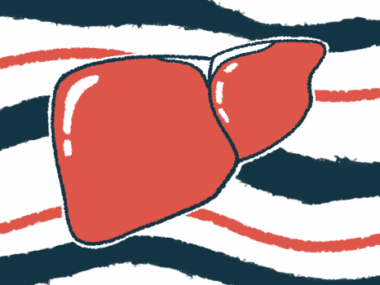Iqirvo wins EU’s conditional OK to treat primary biliary cholangitis
Decision draws from top-line data of Phase 3 ELATIVE study
Written by |

Iqirvo (elafibranor) has been conditionally approved in the European Union to treat adults with primary biliary cholangitis (PBC), either in combination with the first-line therapy ursodeoxycholic acid (UDCA) by those who don’t respond well to UDCA or on its own by those who don’t tolerate it.
The European Commission’s decision follows a positive recommendation from a committee of the European Medicines Agency and draws on top-line data from ELATIVE (NCT04526665), an ongoing Phase 3 clinical trial where Iqirvo outperformed a placebo at reducing blood levels of markers of liver damage.
“We are delighted that Iqirvo is approved in the [European Union] as an effective new option for the treatment of people living with PBC,” Sandra Silvestri, MD, PhD, chief medical officer at Ipsen, Iqirvo’s developer, said in a company press release. “For those patients with PBC that may be at risk of disease progression and who continue to suffer from debilitating symptoms of the disease, we are delighted to be able to offer an effective treatment choice.”
Marco Carbone, MD, PhD, a professor of gastroenterology at the University of Milano-Bicocca in Italy called the approval “a positive development in the treatment and management of PBC that we have a new, efficacious and well-tolerated treatment for our patients.”
Iqirvo was granted accelerated approval in the U.S. for the same indication this year. Both conditional and accelerated approvals allow promising treatments to be marketed based on early clinical evidence that they’re probably effective. Full approval is dependent on additional clinical trial data that confirm a therapy’s safety and efficacy profiles.
An ‘individualized approach’
PBC leads to inflammation and gradual damage to the bile ducts, a network of tubes that transport bile from the liver to the intestines, where it helps digest fats. As a result, bile builds up in the liver, which can cause it to become scarred and stop working, and allows bile components to leak into the bloodstream, resulting in symptoms such as itchy skin.
“PBC is a very personal disease which affects everyone differently. Some people may be more symptomatic with extreme fatigue or severe itch. For others there are no symptoms, but their biomarker levels are poor, suggesting the disease is not being controlled,” said Sindee Weinbaum, a patient advocate of the European Liver Patients’ Association. “This means that an individualized approach to management and treatment is needed for each patient.”
While PBC can progress to where a liver transplant may be needed, there are limited treatment options and consist mainly of UDCA, which is marketed as Urso and Actigall.
“This is a rare liver disease, predominantly found in women, which hasn’t seen new innovation for nearly a decade. This is despite up to half of patients being intolerant or unresponsive to current therapies,” Silvestri said.
Iqirvo is an oral therapy that activates two proteins of the PPAR receptor class — PPAR alpha and PPAR delta — thought to be involved in controlling PBC-driving processes, including inflammation, scarring, and the production of bile acids, a component of bile, in the liver.
By activating these PPAR receptors, the therapy should ease these processes and moderate PBC symptoms. Iqirvo is the first PPAR-activating treatment approved in the European Union for PBC.
What is ELATIVE testing?
The first part of ELATIVE is testing how safe and well tolerated Iqirvo is and how well it works against a placebo in 161 adults with PBC who responded inadequately to or didn’t tolerate UDCA.
Participants were randomly assigned to either the therapy, at 80 mg, or a placebo, once a day for at least a year. Those completing the treatment period may choose to enter an open-label extension where all will receive Iqirvo for up to five years. The trial’s main goal was to evaluate the proportion of patients in either group who achieved a biochemical response or reductions in alkaline phosphatase (ALP) and bilirubin, two biomarkers of disease progression, after a year.
Top-line results showed a significantly higher proportion of patients treated with Iqirvo had their biomarkers drop to normal over those on a placebo (51% vs. 4%).
Patients on Iqirvo tended to have less itching, as assessed with the Worst Itch Numeric Rating Scale. Other measures of itching and its impact on life quality also favored Iqirvo over a placebo. The treatment was generally safe and well-tolerated.
“This new medicine, that has demonstrated its potential in managing disease progression, as well as reducing itch, a symptom that can have a detrimental effect on patients’ quality of life, is positive news for doctors and their patients,” said Carbone, who is also a consultant hepatologist at the Niguarda Liver Transplant Center in Italy.







